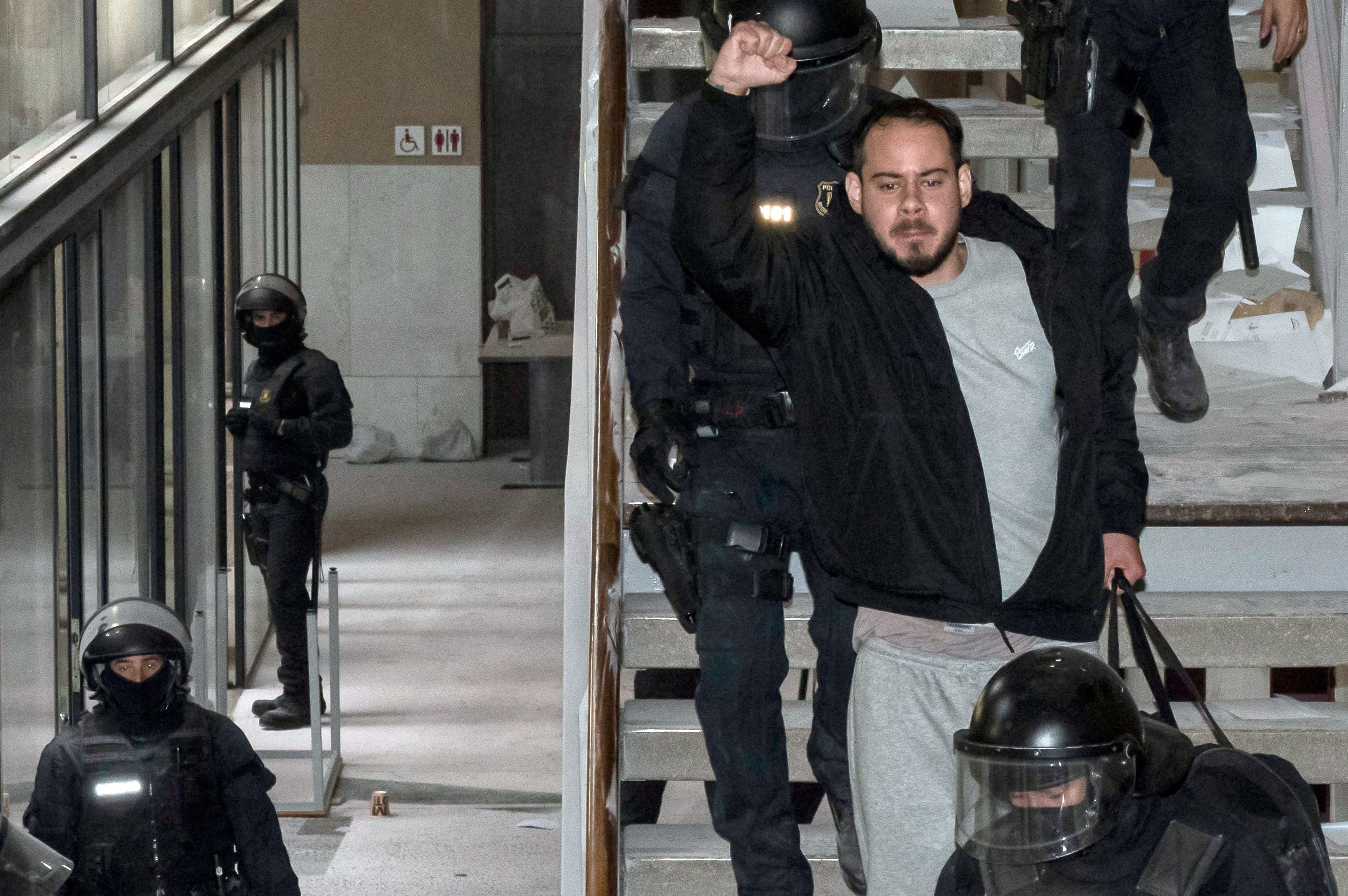Spanish rapper arrested for attacking monarchy after barricading himself in university to avoid jail
Pablo Hasél was finally arrested on Tuesday after a 24-hour standoff with police

A convicted Spanish rapper who had barricaded himself inside a university with supporters in an attempt to avoid arrest has now been taken into custody after a 24-hour standoff with the police.
Pablo Hasél, whose real name is Pablo Rivadulla Duró, was due to begin a nine-month jail sentence for tweets and lyrics attacking the monarchy, but locked himself inside Lleida University in Catalonia on Monday.
Hasél was convicted for glorifying terrorism and slandering the crown and state institutions. The country’s National Court issued an order for his arrest on Monday after a 10-day period for him to enter prison voluntarily expired on Friday.
“We will win, they will not bend us with all their repression, never!” the 32-year-old rapper said as he passed TV news cameras.
Known for his anti-establishment criticism, Hasél was due to serve a sentence from 2018 for tweets and songs he posted between 2014 and 2016 criticising Spain’s royal family and praising a now-defunct Spanish leftist armed extremist group.
“I won’t allow them to tell me what I have to think, feel or say,” he had told AP on Monday. “This serves me as an extra stimulus to keep writing the same songs.
“There is a lot of solidarity from people who understand that this isn’t just an attack against me,” Hasél added.
“But also against our fundamental democratic liberties. Liberties that are being continuously suppressed by the state. When facing aggression against us we must give a collective answer.”
Hasél was charged under 2015 amendments to the Public Security Law known as the “Gag Law” at the time, legislation by the then-government of the Popular party that has been criticised by rights groups for limiting free speech.
After over 200 artists – including the filmmaker Pedro Almodóvar and actor Javier Bardem – signed a petition defending the rapper, the government on 8 February announced that it is planning reforms to the criminal code that would eliminate prison terms for crimes involving freedom of expression.
“The imprisonment of Pablo Hasél leaves the sword hanging over the heads of all public figures who dare to openly criticise the actions of state institutions all the more evident,” the artists’ petition read.
“We are aware that if we allow Pablo to be jailed, tomorrow they could come after any one of us, until they have managed to silence any sigh of dissidence,” it added.
The Spanish branch of Amnesty International has also defended Hasél and said: “Expressions that do not clearly and directly incite violence cannot be criminalised.”
The proposal to reform the code was rejected by the Popular party, now in opposition, and the far-right Vox party.
Additional reporting by agencies
Join our commenting forum
Join thought-provoking conversations, follow other Independent readers and see their replies
Comments


Bookmark popover
Removed from bookmarks